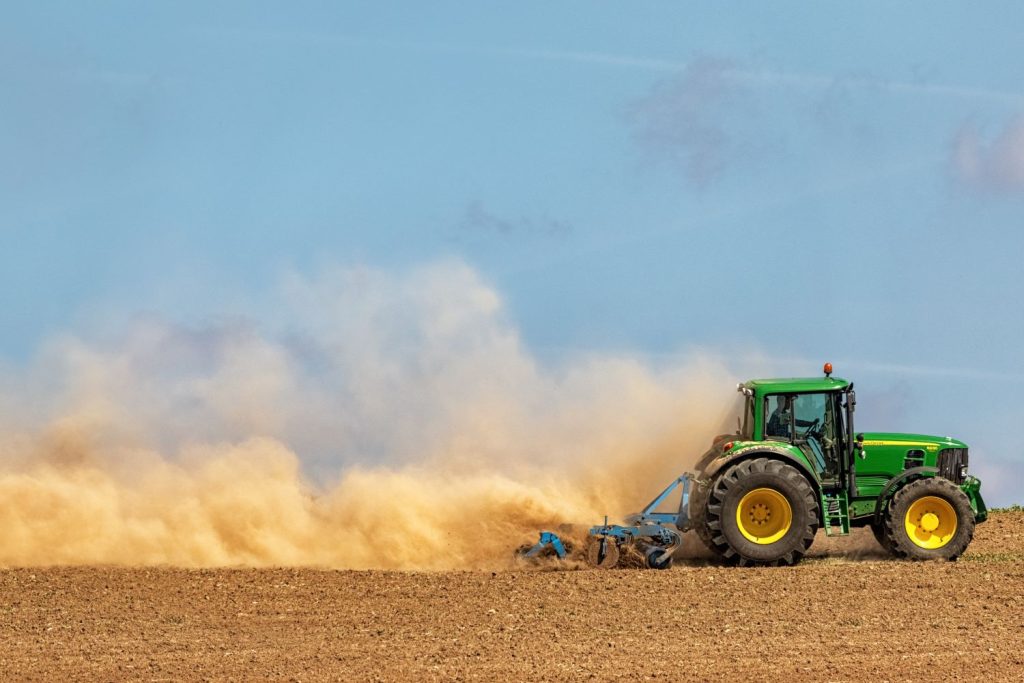

CLICK HERE for Part One
Part Two
With ever increasing brashness and self-confidence, the potato farmers co-operative of Mucho Cilindro powered along on the back of rising potato consumption as well as increasing prices for their crops over the next decade.
Even the notoriously savage climatic conditions that ruined harvests around the world for several years during this period failed to dent the success of the co-operative. Despite the expectation that the cyclones that hit so many areas would whip across the province and Mucho Cilindro, there would be almost no damage to the crops of the village. In fact, opportunities rained down on the famers due in part to the failing yields elsewhere.
Then, one day, out of the blue, the White Knight asked several senior farmers in the co-operative if they’d have a meeting with him. He explained to them that he and his partners no longer saw eye to eye about their futures together and that he therefore wanted to sell their share of the co-operative so that they could go their separate ways.
The senior farmers deliberated and concluded that they should be proactive and find a new partner for the co-operative. They were also aware that the potato market was starting to subtly change and that they needed to invest in a new variety as well as updating their implements.
So, they decided to engage the local Vertically Challenged Person who had once been a famer in the co-operative but had now become a spruiker of farms and other lands across the province. The VCP helped the members of the co-operative to find a rich Utopian to buy the White Knight and his partners’ share.
The Utopian also bought a part of the famers’ remaining share and made them all a little bit richer along the way.
Across the co-operative, the various famers had different uses for this injection of wealth. For some, the money went into the hayloft to help prepare for the inevitable crop failures that would always be a part of farming. Others used the money to pay off debts that they’d accrued as they built those new farmhouses or bought nice carriages. And some took the money, sold their farms to new farmers, and retired to enjoy their newfound leisure.
But what should have been a rosy future for the co-operative quickly soured when it became apparent that the Utopian wasn’t quite as good a spruiker as he thought, and nor was he good at finding another spruiker in place of the White Knight who had ridden off into the sunset.
After a couple of false starts, a new spruiker was eventually found, but not before one of the co-operative’s biggest customers had unilaterally decided to pay considerably less for their share of the potato crop than previously. Under the control of the Utopian, the co-operative had misread the market and thought that it had more power as the seller than it really had.
And so the farmers endured a couple of seasons where they suffered badly from falling incomes. So much so that several farmers actually walked away from their farms, which had become almost unsaleable in a short space of time.
In due course, the Utopian’s own backers replaced him with a Pragmatist. That led to an ultimately better outcome financially for the farmers as they worked hard to turn the market around. Meanwhile, the new spruiker did find a better customer to replace the one who was paying less and this all helped to steady the ship.

Against this backdrop, the market in general was becoming more difficult in many ways. Not only were potatoes increasingly seen as being unnecessary, at least in the quantities that had been consumed in the past, but also many other crops were now available to consumers. Whilst Quinoa remained a purely niche product, rice, and even vegetable, varieties were gaining more and more of a foothold at the expense of the potato.
And so there ensued a period where the co-operative seemed to just muddle through. The heyday of demand outstripping potato production, and thereby keeping prices very high, was increasingly gone.
Farmers struggled to replace implements, those hired hands that were now a part of every farm wanted more money and some farmers got into debt.
Increasingly the older, hands on, farmers were leaving the land, often replaced by a new breed of hobby famer who didn’t need to earn a living from the farm itself. They came from cities far away from the villages such as Mucho Cilindro.
But their money was welcome and kept the village afloat as the potato market contracted.
And gradually, as the Pragmatist lost interest in potato farming, the farmers of the co-operative started to realise that they were missing a fully invested champion level spruiker with skin in the game who could put the sizzle back into the potato in the eyes of the consumer.
So, they hatched a plan to help the Pragmatist sell his share of the co-operative, and the shares of the farmers, to a professional spruiking company from one of the cities.
The Vertically Challenged Person was called back in to assist, and he went to work to find someone, although the value of the co-operative was far less than it had been in the heady days of a decade earlier.
It came to pass that a company was indeed found, and this company presented itself to all the farmers during a time of great pestilence. The farmers were convinced by the offering made to them and entered into a new agreement with these city people.
Whilst the famers no longer owned the co-operative at all, they were now guaranteed a set amount for their crops each year as well as additional money if they exceeded the harvest minimum quota.
And now, time will tell as to whether the new owners of the farmers co-operative of the village of Mucho Cilindro will make a success of their acquisition.
The future of the potato, and the future of Mucho Cilindro, depends upon them. It can only be hoped that they don’t lay waste to the fields and then ride back to the city from which they came leaving the farmers licking their wounds.
Of course, real famers are a highly resilient bunch and would inevitably rise again if need be. But making a poisoned field productive again takes many seasons and much hard work. Better never to allow the poison to take hold in the first place.





















Discussion about this post